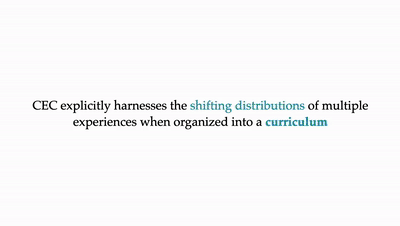Researchers from Stanford, NVIDIA, and UT Austin Propose Cross-Episodic Curriculum (CEC): A New Artificial Intelligence Algorithm to Boost the Learning Efficiency and Generalization of Transformer Agents
Sequential decision-making problems are undergoing a major transition due to the paradigm shift brought about by the introduction of foundation models. These models, such as transformer models, have completely changed a number of fields, including planning, control, and pre-trained visual representation. Despite these impressive developments, applying these data-hungry algorithms to fields like robotics with less data presents a huge barrier. It raises the question of whether it is possible to maximize the limited amount of data that is accessible, irrespective of its source or quality, to support more effective learning.
To address these challenges, a group of researchers has recently presented a unique algorithm named Cross-Episodic Curriculum (CEC). The CEC technique takes advantage of the ways in which different experiences are distributed differently when they are arranged into a curriculum. The goal of CEC is to improve Transformer agents’ learning and generalization efficiency. The fundamental concept of CEC is the incorporation of cross-episodic experiences into a Transformer model to create a curriculum. Online learning trials and mixed-quality demos are arranged in a step-by-step fashion in this curriculum, which captures the learning curve and the improvement in skill across several episodes. CEC creates a strong cross-episodic attention mechanism using Transformer models’ potent pattern recognition capabilities.
The team has provided two example scenarios to illustrate the efficacy of CEC, which are as follows.
- DeepMind Lab’s Multi-Task Reinforcement Learning with Discrete Control: This scenario uses CEC to solve a discrete control multi-task reinforcement learning challenge. The curriculum developed by CEC captures the learning path in both individualized and progressively complicated contexts. This enables agents to gradually master increasingly difficult tasks by learning and adapting in small steps.
- RoboMimic, Imitation Learning Using Mixed-Quality Data for Continuous Control – The second scenario, which is pertinent to RoboMimic, uses continuous control and imitation learning with mixed-quality data. The goal of the curriculum that CEC created is to record the increase in demonstrators’ level of expertise.
The policies produced by CEC perform exceptionally well and have strong generalizations in both scenarios, which suggests that CEC is a viable strategy for enhancing Transformer agents’ adaptability and learning efficiency in a variety of contexts. The Cross-Episodic Curriculum method comprises two essential steps, which are as follows.
- Curricular Data Preparation: Curricular data preparation is the initial step in the CEC process. This entails putting the events in a particular order and structure. To clearly illustrate curriculum patterns, these events are arranged in a particular order. These patterns can take many different forms, such as policy improvement in single environments, learning progress in progressively harder environments, and an increase in the demonstrator’s expertise.
- Cross-Episodic Attention Model Training: This is the second significant stage in training the model. The model is trained to anticipate actions during this training phase. The unique aspect of this method is that the model may look back at earlier episodes in addition to the current one. It is capable of internalizing the enhancements and policy adjustments noted in the curriculum data. Due to the model’s use of prior experience, learning can occur more efficiently.
Usually, colored triangles, which stand in for causal Transformer models, are used to show these stages visually. These models are essential to the CEC method because they make it easier to include cross-episodic events in the learning process. The model’s recommended actions, indicated by “a^,” are essential for making decisions.
Check out the Paper, Code, and Project. All Credit For This Research Goes To the Researchers on This Project. Also, don’t forget to join our 31k+ ML SubReddit, 40k+ Facebook Community, Discord Channel, and Email Newsletter, where we share the latest AI research news, cool AI projects, and more.
If you like our work, you will love our newsletter..
We are also on WhatsApp. Join our AI Channel on Whatsapp..
![]()
Tanya Malhotra is a final year undergrad from the University of Petroleum & Energy Studies, Dehradun, pursuing BTech in Computer Science Engineering with a specialization in Artificial Intelligence and Machine Learning.
She is a Data Science enthusiast with good analytical and critical thinking, along with an ardent interest in acquiring new skills, leading groups, and managing work in an organized manner.
Credit: Source link


Comments are closed.